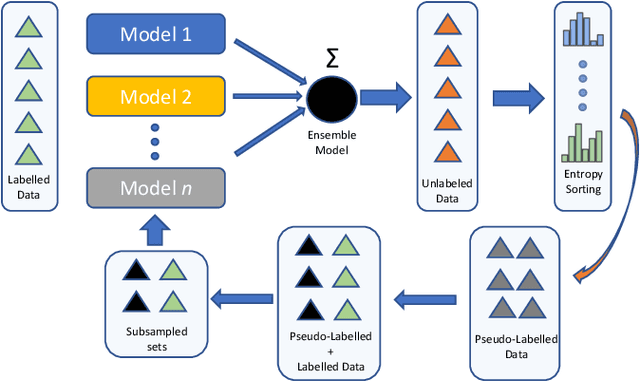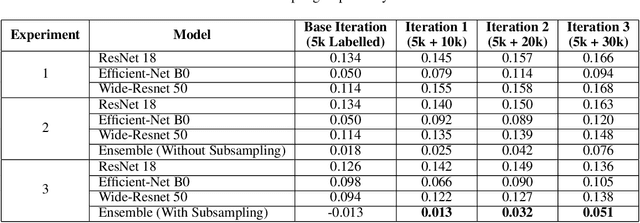Awanish Kumar
Evaluation of Switching Technologies for Reflective and Transmissive RISs at Sub-THz Frequencies
Apr 28, 2025Abstract:For the upcoming 6G wireless networks, reconfigurable intelligent surfaces are an essential technology, enabling dynamic beamforming and signal manipulation in both reflective and transmissive modes. It is expected to utilize frequency bands in the millimeter-wave and THz, which presents unique opportunities but also significant challenges. The selection of switching technologies that can support high-frequency operation with minimal loss and high efficiency is particularly complex. In this work, we demonstrate the potential of advanced components such as Schottky diodes, memristor switches, liquid metal-based switches, phase change materials, and RF-SOI technology in RIS designs as an alternative to overcome limitations inherent in traditional technologies in D-band (110-170 GHz).
Self Training with Ensemble of Teacher Models
Jul 17, 2021


Abstract:In order to train robust deep learning models, large amounts of labelled data is required. However, in the absence of such large repositories of labelled data, unlabeled data can be exploited for the same. Semi-Supervised learning aims to utilize such unlabeled data for training classification models. Recent progress of self-training based approaches have shown promise in this area, which leads to this study where we utilize an ensemble approach for the same. A by-product of any semi-supervised approach may be loss of calibration of the trained model especially in scenarios where unlabeled data may contain out-of-distribution samples, which leads to this investigation on how to adapt to such effects. Our proposed algorithm carefully avoids common pitfalls in utilizing unlabeled data and leads to a more accurate and calibrated supervised model compared to vanilla self-training based student-teacher algorithms. We perform several experiments on the popular STL-10 database followed by an extensive analysis of our approach and study its effects on model accuracy and calibration.
 Add to Chrome
Add to Chrome Add to Firefox
Add to Firefox Add to Edge
Add to Edge